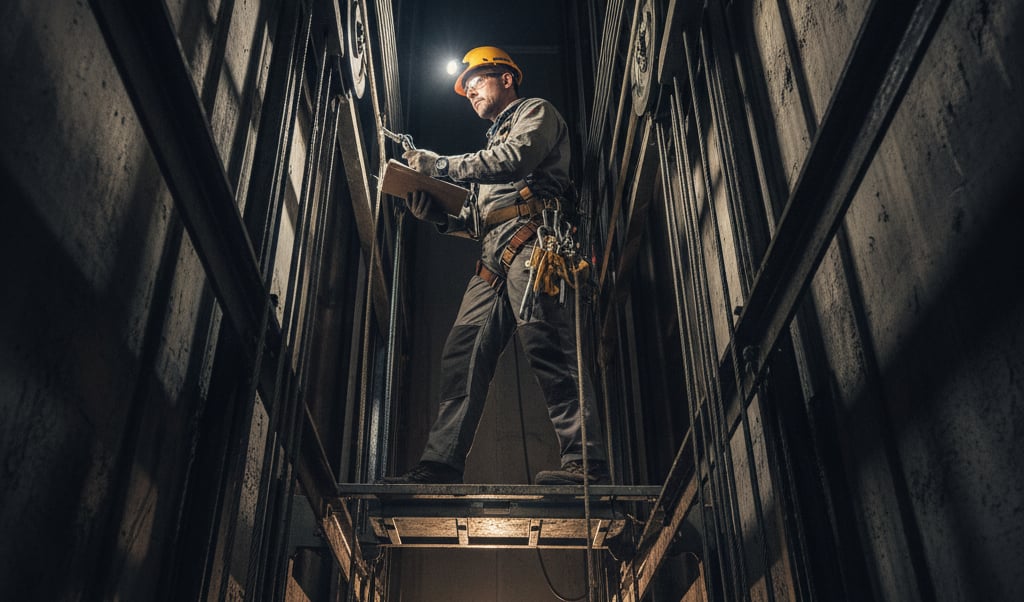Elevator and Escalator Accidents: Owner Negligence

Riding an elevator or escalator is something most people do without a second thought. Whether in office buildings, shopping malls, or apartment complexes, these machines are part of daily life in California. But when property owners or maintenance companies neglect their legal duty to keep these systems safe, the results can be catastrophic.
A sudden escalator accident, a malfunctioning elevator door, or a jerking stop can lead to serious injuries that change a person’s life in seconds. When this happens, building owners, property managers, or maintenance contractors may be held liable under premises liability law.
How Elevator and Escalator Accidents Happen
Both elevators and escalators rely on complex mechanical systems that demand regular inspections, routine maintenance, and immediate repairs when something goes wrong.
Unfortunately, poor maintenance and overlooked safety standards are among the most common causes of these accidents. Some of the ways these incidents occur include:
- Sudden stops or drops in elevators due to faulty cables or brakes
- Misaligned doors closing on passengers or trapping clothing
- Escalator steps that break or collapse mid-operation
- Defective parts causing jerky movements or sharp jolts
- Electrical failures leading to sudden power loss
- Improperly maintained handrails or steps causing falls
- Wet or oily surfaces near entrances creating slip hazards
While some mishaps result in bruises or sprains, others lead to devastating injuries such as head injuries, spinal injuries, and broken bones.
Who Is Responsible When an Accident Occurs?
Determining liability in an elevator or escalator accident isn’t always straightforward. Multiple parties may share responsibility for ensuring safe operation, including:
- Building owners, who have a legal duty to maintain a safe environment
- Property managers, who oversee inspections and repairs
- Maintenance companies or repair contractors, who must follow manufacturer and state safety standards
- Manufacturers of the elevator or escalator, if a defective part caused the malfunction
Each of these entities can be legally responsible if their negligence directly contributes to an accident. An experienced personal injury lawyer can investigate to determine where the failure occurred.
The Building Owner’s Legal Duty
Under California’s premises liability laws, building owners must exercise reasonable care to protect anyone legally on their property. That duty extends to maintaining elevators and escalators in good working order.
Failure to do so can make them liable for any injuries that occur. Owners must:
- Schedule regular inspections with certified technicians
- Keep maintenance logs and inspection records
- Repair issues as soon as they’re reported
- Post warning signs or temporarily close malfunctioning equipment
If a property owner or management company ignores these steps and an accident occurs, victims have the right to pursue compensation for their injuries.
Maintenance Companies and Shared Responsibility
While proper owners are primarily responsible, maintenance companies play a critical role in preventing accidents. These contractors are often hired to conduct inspections, lubricate moving parts, replace worn components, and verify safety systems.
If a maintenance company fails to perform these duties—or falsifies maintenance records—they too may be held liable. A single missed inspection or ignored warning sign can lead to catastrophic injury for unsuspecting passengers.
Negligence can take many forms, including:
- Failing to repair known mechanical issues
- Skipping required state safety inspections
- Using unqualified technicians for repairs
- Ignoring manufacturer safety bulletins or recalls
When both the property owner and maintenance contractor cut corners, the law allows injured victims to hold multiple parties accountable.
Common Injuries in Elevator and Escalator Accidents
Elevator and escalator accidents can cause a wide range of injuries, depending on the malfunction. Common examples include:
- Head injuries from sudden stops or falls
- Broken bones and fractures from entrapment or impact
- Spinal injuries due to falls between floors
- Lacerations or bruising from sharp metal edges
- Crush injuries when clothing or limbs become trapped
- Emotional distress and anxiety after a traumatic event
In severe cases, victims may require surgery, extended hospital stays, and long-term rehabilitation. These injuries often result in significant medical expenses, lost wages, and lasting physical pain.
How Negligence Is Proven
To win a personal injury claim for an elevator or escalator accident, your attorney must establish that someone’s negligence caused your injuries. This process typically involves proving four elements:
- The defendant (property owner, manager, or maintenance company) had a duty of care.
- They breached that duty by failing to maintain, repair, or inspect the equipment.
- That failure directly caused your injuries.
- You suffered measurable damages, such as medical bills, lost income, or emotional distress.
Evidence plays a critical role in these cases. Your premise liability attorney may gather:
- Inspection records and maintenance logs
- Surveillance footage from the accident scene
- Witness statements or testimonies
- Expert testimony from engineers or safety inspectors
- Your medical records documenting the extent of your injuries
By connecting the failure to maintain with the resulting accident, your lawyer can help prove that one or more parties were negligent.
The Role of Maintenance and Inspection Records
In California, elevators and escalators are subject to strict state safety regulations, requiring annual inspections and routine maintenance. These requirements exist to prevent escalator and elevator accidents that could injure residents, employees, and visitors.
When a maintenance company or property manager fails to keep accurate maintenance logs, this lack of documentation can serve as evidence of negligence. In some cases, inspection records reveal that warnings or repair recommendations were ignored—an indicator of serious liability.
Having access to these records allows a personal injury attorney to identify responsible parties and strengthen the case for full compensation.
Potential Compensation for Victims
Victims injured in elevator and escalator accidents can pursue financial recovery for a range of damages, including:
- Medical expenses and future care costs
- Lost income or reduced earning capacity
- Physical pain and emotional distress
- Rehabilitation and therapy expenses
- Property damage, such as personal items destroyed during the accident
The goal of a personal injury claim is to restore victims to the financial position they were in before the accident—or as close as possible—through a fair settlement or court judgment.
Why You Should Seek Immediate Medical Attention
Even if your injuries seem minor at first, it’s crucial to seek immediate medical attention after an elevator or escalator accident. Some injuries, like whiplash, concussions, or internal damage, can take days to appear.
Prompt care also creates a medical record that documents your condition and connects it to the accident, which strengthens your claim. Delaying treatment can give insurance companies or property owners room to dispute your injuries later.
Protecting Your Legal Rights After a Malfunction
After an elevator or escalator accident, take the following steps to protect your rights:
- Call for emergency help and get medical treatment.
- Report the accident to building management or security.
- Take photos of the scene, including warning signs and visible damage.
- Collect witness statements if anyone saw what happened.
- Avoid signing anything from the property owner’s insurer without legal advice.
- Contact a personal injury lawyer immediately to evaluate your case.
Acting quickly ensures vital evidence—like surveillance footage or maintenance reports—is preserved.
How Harker Injury Law Can Help
At Harker Injury Law, our team understands how devastating these incidents can be. We’ve represented clients injured in elevator and escalator accidents across Southern California, helping them recover the full compensation they deserve.
Our attorneys investigate every detail—maintenance history, inspection records, witness testimonies, and expert analysis—to prove where negligence occurred. We hold building owners, maintenance contractors, and property managers accountable when their carelessness leads to harm.
If you’ve suffered an injury because a building owner failed to properly maintain an elevator or escalator, you have legal options—and we’re here to help.
Call Today for a Free Consultation
Don’t let a negligent property owner or maintenance company shift the blame. Protect your health and your future with experienced legal help.
Call Harker Injury Law at 760-INJURED (760-465-8733) for a free consultation. Our personal injury lawyers will review your case, explain your rights, and fight to secure maximum compensation for your injuries, lost wages, and medical bills.










